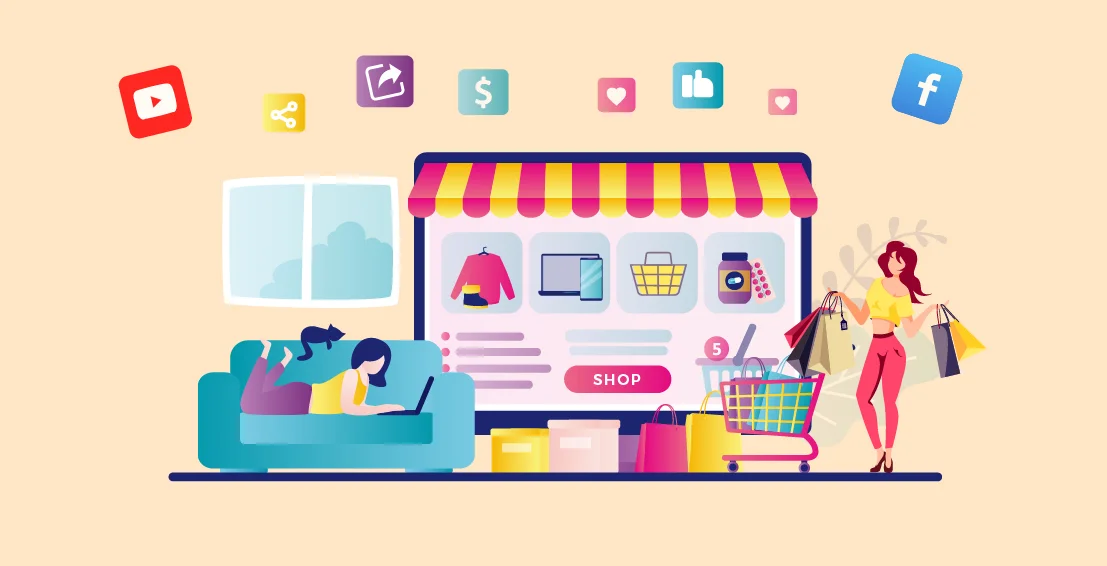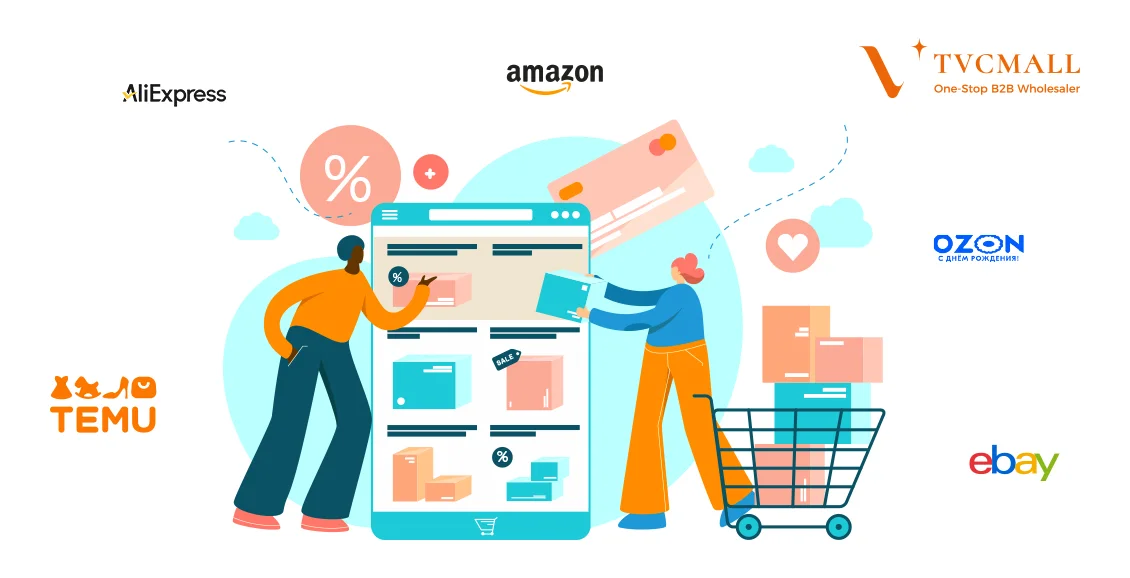What Does the Future of Wholesale Business and Ecommerce Look Like?
Smart business owners are always on the lookout for future trends. The future will bring plenty of changes to the future of wholesale business and ecommerce. In this article, learn how technology and customer expectations are evolving.

Smart entrepreneurs are always looking ahead. By identifying future trends, you can pivot and steer your company toward success. In this article, the market experts at TVCMALL unpack what the future of wholesale business and ecommerce looks like.
Big Growth Is Projected
Wholesale business and ecommerce are growing faster than ever due to recent events and developments. Everyone got used to doing things online, such as working and shopping, when the pandemic hit in 2020. That familiarity and comfort has only grown in the years since.
Additionally, Gen Z, the first digital natives, are coming of age and wielding their purchasing power through online shopping. Finally, technologies such as artificial intelligence, Big Data, and augmented reality are closing the experiential gap between in-person and online shopping.
All of these factors add up to big growth for the wholesale business and ecommerce industries. Statista projects that worldwide revenue from ecommerce will reach almost $3.2 trillion USD in 2024 and continue to grow by 9.5% annually through 2029.
More Consumers Are Using Voice Search
Voice searches and commands became commonplace when Amazon rolled out Alexa in 2014. But developments in Natural Language Processing (NLP) are turbo-charging the widespread adoption of voice search in wholesale business and ecommerce.
Previous technology “translated” voice searches into digital text and then searched for that text as if it had been typed into a search bar. NLP processing takes that process to the next level by also interpreting what the user means. The result is a much more efficient and enjoyable shopping experience for the consumer.
As we spend more time shopping online, it makes sense that more consumers will turn to the convenience of voice search. Already, 56% of smartphone users use voice search to find out more about businesses and brands, according to data analytic company Yaguara. And according to one study, revenue from voice shopping is just over $3 billion USD but is projected to be $45 billion USD by 2028.
AR Will Continue to Grow
The benefits that Augmented Reality (AR) brings to wholesale businesses and ecommerce cannot be overstated. Traditionally, consumers have been slow to adopt online shopping. Instead, they prefer the experience of in-person shopping, where they can handle, examine, and try out products before they buy.
AR makes online shopping closer to the encounter of in-person shopping. After all, making consumers imagine themselves owning and using the product is a powerful way to increase sales. Through AR, you give consumers a more engaging shopping experience that does just that.
AR’s potential to drive sales is why more wholesale businesses and ecommerce sites are adopting the technology. According to Statista, one-third of Americans will use AR to make online purchases by 2025, while 45% of shoppers in Saudi Arabia will use AR.
Personalization Will Become Even More Targeted
AI and Big Data are exploding and, when used together, allow brands to create hyper-personalized shopping experiences. The personalization enhancements consumers enjoy will come as a result of three trends: headless personalization, privacy-first personalization, and personalization through AI-driven product recommendations.
Headless Personalization
It may sound like something out of The Legend of Sleepy Hollow, but headless personalization actually refers to the way your website appears to individual visitors. Essentially, headless personalization decouples the backend of your site from the front end.
Without getting into the technical mumbo-jumbo, headless personalization makes it possible for your website to appear differently to different visitors based on their past behavior. So, the homepage each visitor sees contains the products they are most likely to purchase.
Privacy-First Personalization
Shoppers are more wary of the way their personal information is used. Simply put, it comes across as creepy when the purchase they make at their local store using their shopper card influences what they see on an unrelated company’s website. Such tactics make it obvious that consumer data is being passed around to the largest bidder.
Privacy-first personalization seeks to reestablish consumer trust while still providing the personalized experience they want. So, rather than purchasing data from third parties, brands collect data directly from users. By adopting privacy-first personalization, you’re building trust and loyalty with your customers.
AI-Driven Product Recommendations
AI can digest data with far more accurate and effective results than human-made algorithms. By using AI, you can offer sophisticated and personalized recommendations that feel more like a best friend’s insight than a machine’s computation. In other words, AI-driven product recommendations make consumers feel understood.
Look to the Future with TVCMALL
There are big changes coming down the pipeline for wholesale business and e-commerce. But there’s one thing that never changes: customers want quality products at a good price from brands they can trust. You’ll THRIVE when you exceed these expectations. TVCMALL can help you get there. Contact us today.
Leave a Comment
Your email address will not be published. Required fields are marked *
Mantenha-se Atualizado com o Atacado TVCMALL
Inscreva-se gratuitamente no nosso blog e receba conselhos especializados, informações do setor e as melhores escolhas de atacado. Aumente suas vendas com a TVCMALL hoje!



